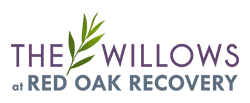Coping skills for addiction issues can be a game-changer. At The Willows at Red Oak Recovery®, we understand the complexities of addiction in women and the importance of finding healthy coping mechanisms. Call us at 866.514.2480 to learn how our women’s substance abuse treatment in North Carolina helps empower women to lead the lives they deserve.
issues can be a game-changer. At The Willows at Red Oak Recovery®, we understand the complexities of addiction in women and the importance of finding healthy coping mechanisms. Call us at 866.514.2480 to learn how our women’s substance abuse treatment in North Carolina helps empower women to lead the lives they deserve.
Coping Skills and Relapse Rates
One of the biggest misconceptions about addiction is that it’s primarily about the physical dependence on substances.
The three reasons people drink and use include:
- ol]:!pt-0 [&>ol]:!pb-0 [&>ul]:!pt-0 [&>ul]:!pb-0″ value=”2″>To get rid of a feeling
- If you evaluate your patterns of drinking or using drugs, you’ll find that these three reasons are very accurate. The problem is that these are part of the human condition, which means that everyone is going to have painful feelings. The good news is that through addiction therapy services, you can learn how to manage these issues. A life where you don’t need to turn to a drink or a drug to deal with your thoughts or emotions is possible.
How Coping Skills Can Help
Our treatment doesn’t just address the symptoms of addiction, but also the underlying issues that contribute to substance abuse. We believe that developing healthy coping skills is a crucial step in achieving and maintaining sobriety.
Coping skills are specific techniques and strategies that can help individuals manage difficult emotions and situations without turning to substances. These skills can include:
- ol]:!pt-0 [&>ol]:!pb-0 [&>ul]:!pt-0 [&>ul]:!pb-0″ value=”2″>Engaging in physical activity or exercise
- ol]:!pt-0 [&>ol]:!pb-0 [&>ul]:!pt-0 [&>ul]:!pb-0″ value=”4″>Seeking support from friends, family, or a therapist
- By incorporating these coping skills into your daily routine, you can better handle stressors and triggers that may lead to relapse. While it
Examples of Coping Skills for Addiction Recovery
Here are some specific coping skills that may be helpful for individuals in addiction recovery:
- Practicing gratitude: Focusing on the positive aspects of your life can help improve your overall outlook and reduce feelings of anxiety or depression.
- Setting boundaries: Learning to say no to things that may jeopardize your sobriety is essential. This could include avoiding certain people, places, or activities.
- Finding a support group: Connecting with others who have gone through similar experiences can provide encouragement and understanding.
- Engaging in self-care activities: Taking care of yourself physically, emotionally, and spiritually can help you stay grounded and focused on your recovery journey.
It’s important to remember that coping skills are not one-size-fits-all. It may take time and experimentation to find the techniques that work best for you.
Developing healthy coping skills is a lifelong process, and it’s essential to continue practicing these skills even after completing addiction treatment. In addition to helping prevent relapse, regularly utilizing coping mechanisms can also improve overall well-being and quality of life.
Coping Skills for Mental Health Issues
Many individuals struggling with addiction also have underlying mental health issues that contribute to their substance abuse. Coping skills can be especially beneficial for managing these co-occurring disorders.
For example, those with anxiety may benefit from practicing relaxation techniques or creating a self-care routine. Those with depression may find relief in writing/journaling or participating in support groups.
It’s essential to address both addiction and any co-occurring mental health issues simultaneously to increase the chances of successful recovery. Our treatment programs at The Willows at Red Oak Recovery® include individualized therapy and group sessions designed to help women develop healthy coping skills for all areas of their lives.
Group Coping Skills
While you’re in treatment, you’re going to do individual therapy, but you’re also going to do group therapy sessions. Group therapy is extremely beneficial because you’re going to learn the value of having a support group. In group sessions, the first thing that becomes apparent is that you’re not alone in your struggles. Through these sessions, you’ll see how valuable it is to bounce ideas off of your peers and look at their thoughts.
The best part about being involved in a recovery community is that you’ll build relationships that can last a lifetime. In treatment, you’ll begin to develop the coping skills of reaching out to others when you’re struggling with your recovery. As you start to see these benefits, it will be easier for you to reach out to people once you leave treatment. The most important thing to remember is that you don’t have to do this alone.
Our Women-Centric Treatment Approach
At The Willows at Red Oak Recovery®, we understand that every woman’s journey to recovery is unique. That’s why our treatment programs are specifically designed for women and address the specific challenges they face in addiction and mental health.
Our compassionate team of professionals works with each client to create an individualized treatment plan that focuses on developing healthy coping skills and addressing underlying issues. We also offer a range of experiential therapies, such as equine therapy, adventure therapy, and mindful movement, to help clients discover new ways to cope with their emotions.
Equipping You with Tools for Success
Developing coping skills isn’t just about fighting urges and avoiding relapse; it’s about living a fulfilling life in recovery. Our goal at The Willows at Red Oak Recovery® is to equip women with the tools they need to achieve long-term sobriety and maintain emotional wellness.
When a person has the tools to manage difficult emotions and situations, they can better navigate through life’s challenges without turning to substances. Our addiction treatment programs focus on empowering women to take control of their recovery journey and develop a strong foundation for lasting happiness.
Call The Willows Today
Recovery is possible, and it starts with learning healthy coping skills. Contact us online or call us today at 866.514.2480 to learn more about how we can help you or a loved one find lasting recovery from addiction and mental health issues. Our compassionate team is here to guide you towards a brighter future. Don’t hesitate to reach out and take the first step towards healing and living a fulfilling life in recovery.

